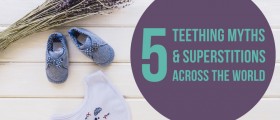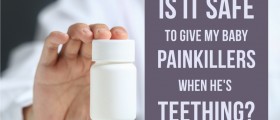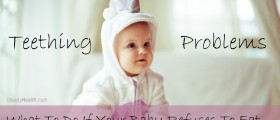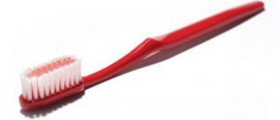
Information about Teething
Teething is a process that occurs in infants. During the process the teeth break through the gums. Sometimes it may be referred to as cutting of the teeth but the correct medical term is odontiasis. The symptoms of teething usually kick in a few days before the actual eruption of the teeth takes place. The first tooth usually erupts when a baby is around 6 months old. Sometimes there may be a family pattern that involves an early, average or late teething.
A rare medical condition referred to as the natal teeth sometimes may occur and it involves the presence of a tooth at the very day of birth. The condition is very rare and it should not indicate any abnormalities, but it still may represent a syndrome in a certain way. Syndrome requires a medical attention from a geneticist and a pediatric dentist. The natal tooth is usually loose and it gets removed right away because otherwise it may get aspired into the lungs.
Signs and Symptoms
The most common signs of teething are jaw and gum discomfort which occur before the tooth erupts through the surface of the gum. Sometimes teething may also involved swelling and redness of the area. Rare cases have included an occurrence of fluid filled blisters over the erupting tooth. Sensitivity of an erupting tooth may vary greatly.
The larger the molar is, the more discomfort it may cause during the actual process of eruption. Permanent teeth usually do not cause any discomfort as the primary teeth do. The third molars sometimes may be the exception to the rule. Teething can cause certain other medical conditions and ailments such as reoccurring fussiness, increased drooling, food refusal, restlessness, bringing hands to the mouth, decreased sleeping, gum soreness, rash around the mouth, cheek and ear region rubbing, and skin irritation.
Teething can sometimes be mistakenly associated with certain symptoms. Teething does not cause high fever. It also cannot be the cause of a cough or a runny nose. Diarrhea also cannot be caused by teething. Teething cannot trigger rashes all over the body and it cannot be associated with prolonged instances of fussiness.
Teething is very hard to diagnose and it sometimes causes certain side effects such as hand biting, facial rash, night wakening, chewing on things, crankiness, gum rubbing, hardening of the gums, increased sensitivity of the gums, irritability, ear pulling, feeding difficulties and a low-grade fever.












,-Don't-Ignore-Receding-Gums_f_280x120.jpg)




Your thoughts on this
Loading...